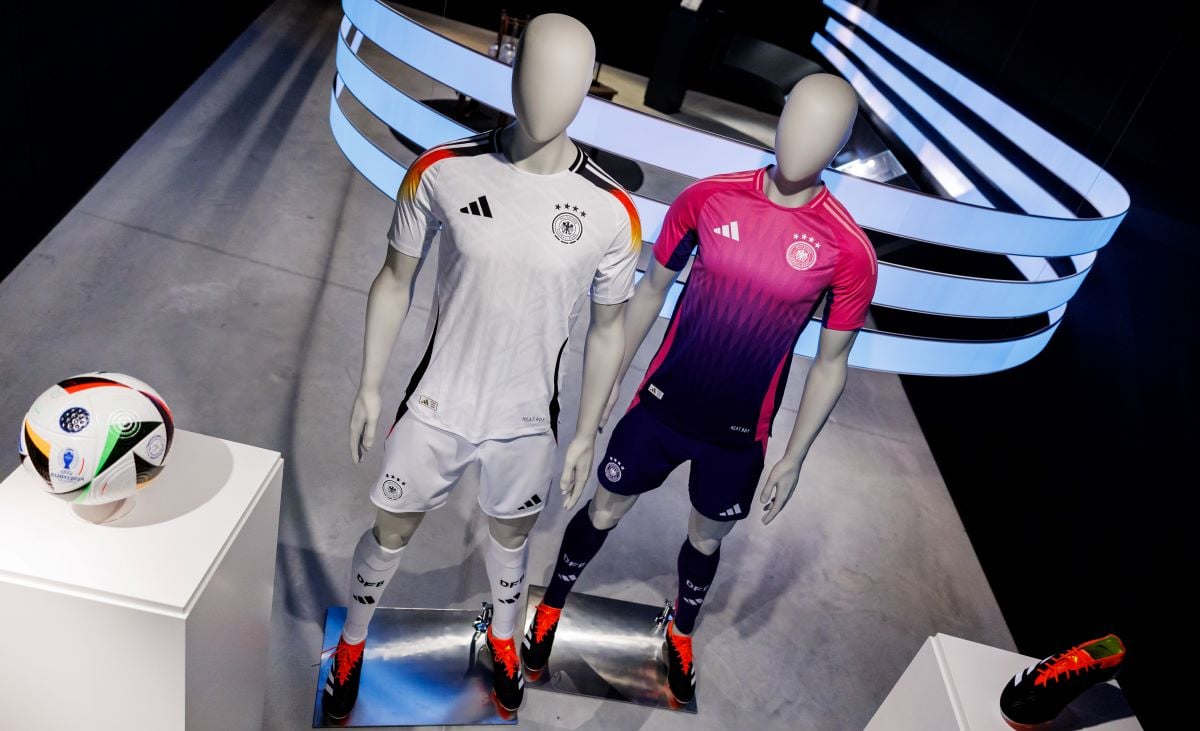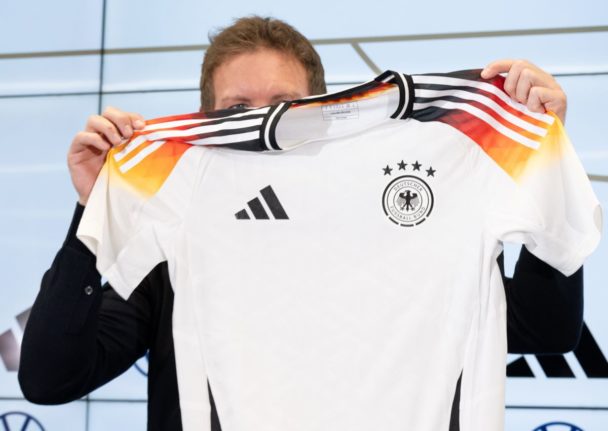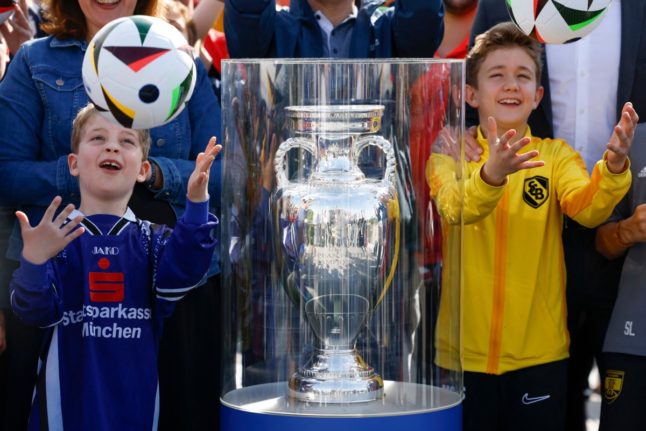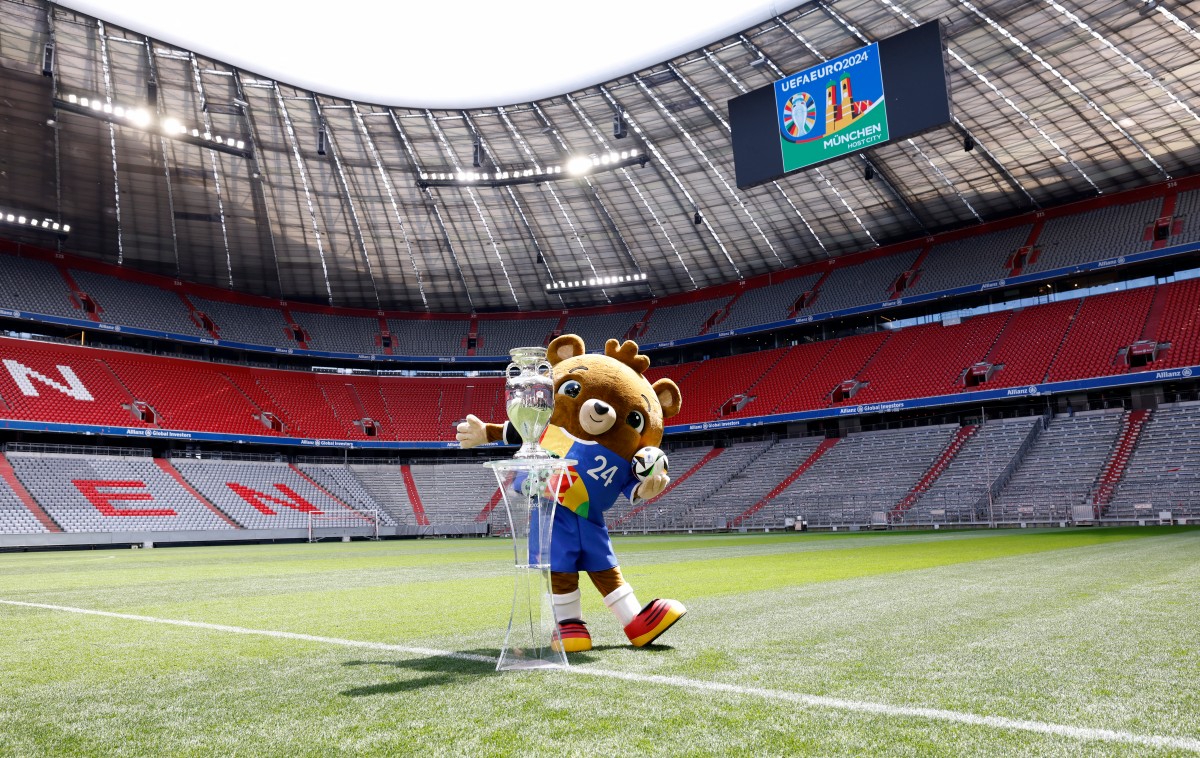“I can hardly imagine the Germany shirt without the three stripes,” Economy Minister Robert Habeck said in a statement to AFP.
“For me, Adidas and black-red-gold always belonged together,” Habeck said, describing the pairing as a “piece of German identity”.
With the homegrown sportswear brand and the economy both experiencing tough times, Habeck said he “would have hoped for more patriotism” from the German Football Association (DFB).
The DFB on Thursday said it would end its decades-long partnership with Adidas, selecting Nike as its new supplier from 2027.
German national teams have worn Adidas gear since the 1950s, with the partnership becoming synonymous with the success on the pitch.
The deal with Nike was “by far the best financial offer” on the table, DFB CEO Holger Blask said in a statement.
The collaboration between Adidas and the German national football team goes all the way back to the 1950s and the team’s first World Cup success.
The switch from Adidas was the “wrong decision”, Health Minister Karl Lauterbach said Thursday on X, formerly Twitter.
The move saw “commerce destroy a tradition and a piece of home”, Lauterbach said.
Adidas soll nicht mehr Nationaltrikot im Fußball sein? Statt dessen ein US Unternehmen? Halte ich für eine Fehlentscheidung, wo Kommerz eine Tradition und ein Stück Heimat vernichtet… pic.twitter.com/14N4xWCQJa
— Prof. Karl Lauterbach (@Karl_Lauterbach) March 21, 2024
The Nike “swoosh” will replace the Adidas “three stripes” on the German shirt from 2027, under a deal with the DFB that will run through 2034.
Nike also made a “clear commitment to the promotion of amateur sport, as well as the sustainable development of women’s football in Germany”, DFP CEO Blask said.
The timing of the announcement, just months ahead of the start of the Euro 2024 championships in Germany, was wholly “usual”, Blask said.
The kit change will come as a bitter blow to Adidas, which has faced mounting difficulties of late.
“We were informed by the DFB today that the association will have a new supplier from 2027,” the German sportswear group said in a statement.
Fans and Adidas workers alike are expressing shock over the news on social media.
“Adidas” climbed to the top of trending topics on social media platform X shortly after the deal was announced, showing how shocking the news is for German football fans. At time of writing, both “Adidas” and then “Nike” are the 2nd and 3rd top trends respectively.
‘Joint success’
The DFB would “do everything for joint success” with its long-time partner Adidas before the end of the year, DFB president Bernd Neuendorf added in the statement.
The German men’s team under the guidance of coach Julian Nagelsmann will set up base for the tournament at the training complex next to Adidas’s home in Herzogenaurach, in Bavaria.
The men will wear Adidas gear again at the 2026 World Cup, being hosted jointly by the United States, Mexico and Canada, before switching to Nike.

Germany’s footballers have hoisted a number of trophies while dressed in gear bearing Adidas’s three stripes. The collaboration between team and kit-maker began in 1954, when West
Germany sensationally beat favourites Hungary to win the World Cup that year.
Since then, the German men’s team have lifted another three World Cups, while the women have two to their name.
The loss of the German kit contract comes after the German group reported its first loss in 30 years earlier this month.
A bitter break-up with artist Kanye West in 2022 and the loss of revenues from his popular Yeezy line have weighed on the brand.
For 2023, Adidas registered a loss of 75 million euros ($82 million), following a profit of 612 million euros the previous year.
Adidas had been paying approximately 50 million euros a year to kit out the German national football teams, according to daily Bild.
The popular tabloid described the switch as an “earthquake” after Adidas unveiled the German national team’s jerseys for this year’s Euros last week. The newly unveiled jersey design also caused some surprise in Germany. Adidas’ redesign for the men’s away shirt replaced the traditional black and red, or green colours with a kit that is bright pink and blue.




 Please whitelist us to continue reading.
Please whitelist us to continue reading.
Member comments